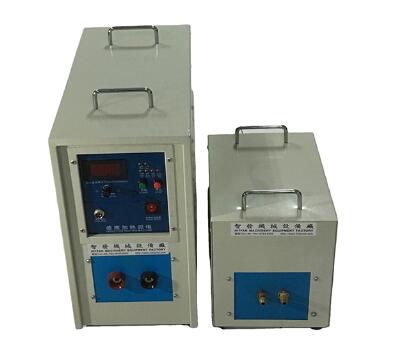What is high-frequency induction heating used for?
High-frequency induction heating is a versatile and efficient technology that has found its place in numerous industrial applications across various sectors. This advanced heating method utilizes electromagnetic fields to heat electrically conductive materials rapidly and uniformly. The ability to precisely control the heating process makes high-frequency induction heating indispensable in many manufacturing processes. Let's delve into the diverse applications where high-frequency induction heating plays a pivotal role:
1. Metal Hardening and Tempering: Induction heating is widely used in heat treatment processes like hardening and tempering. It enables controlled heating and rapid cooling of metals, enhancing their hardness and durability. By carefully adjusting the frequency and power, manufacturers can achieve specific metallurgical properties that improve the mechanical strength of components.
2. Brazing and Soldering: High-frequency induction heating is a preferred method for brazing and soldering applications. It allows the precise localized heating of joints, resulting in strong and reliable bonds between metal components. This technique is utilized in industries like automotive manufacturing, electronics, and aerospace, where strong and precise connections are essential.
3. Annealing: Induction heating is crucial in the annealing process, which involves heating a metal to a specific temperature and then gradually cooling it to improve its ductility and reduce internal stresses. This is vital in industries such as steel production, where annealed steel exhibits better formability and strength characteristics.

4. Forging and Hot Forming: The rapid and controlled heating provided by high-frequency induction heating is instrumental in forging and hot forming processes. It ensures uniform heating, allowing manufacturers to shape metals efficiently while maintaining their desired properties.
5. Surface Hardening: Induction heating is used for surface hardening applications, where only the outer layer of a component is heated and subsequently quenched. This creates a hardened surface while preserving the core's toughness. It's commonly used in industries like automotive, where critical components need to withstand wear and stress.
6. Induction Welding: Induction heating is used in induction welding processes, where heat is generated at the joint between two pieces of metal, facilitating their fusion. This method is applied in the manufacturing of tubes, pipes, and other cylindrical structures.
7. Metal Melting: In specialized applications, high-frequency induction heating is used to melt metals for casting and metallurgical purposes. This can be seen in foundries and metal processing industries.
8. Heat Shrinkage and Fitting: Induction heating is employed for heat shrinkage processes, where parts like bearings are heated, allowing them to expand for easy fitting onto shafts. Subsequent cooling results in a tight fit when the parts contract.
9. Surface Coating and Heat Treatment: Induction heating is utilized in surface coating processes such as thermal spraying and surface hardening with wear-resistant materials. It's also employed in localized heat treatment to improve specific sections of components without affecting the entire part.
10. Food Processing: In the food industry, high-frequency induction heating Machine is used for various processes like pasteurization, sterilization, and sealing food packaging.
11. Medical and Scientific Applications: High-frequency induction heating finds applications in medical devices and scientific research, such as materials testing and certain types of laboratory equipment.
In conclusion, high-frequency induction heating is a versatile technology that offers precise and controlled heating in a variety of industrial applications. Its ability to provide rapid and uniform heating, as well as its flexibility in adjusting parameters, makes it a preferred choice for processes ranging from heat treatment and surface hardening to brazing and soldering. The efficiency and accuracy of induction heating contribute significantly to enhancing product quality, reducing energy consumption, and improving the overall manufacturing process across multiple industries.
240
0
0


Comments
All Comments (0)